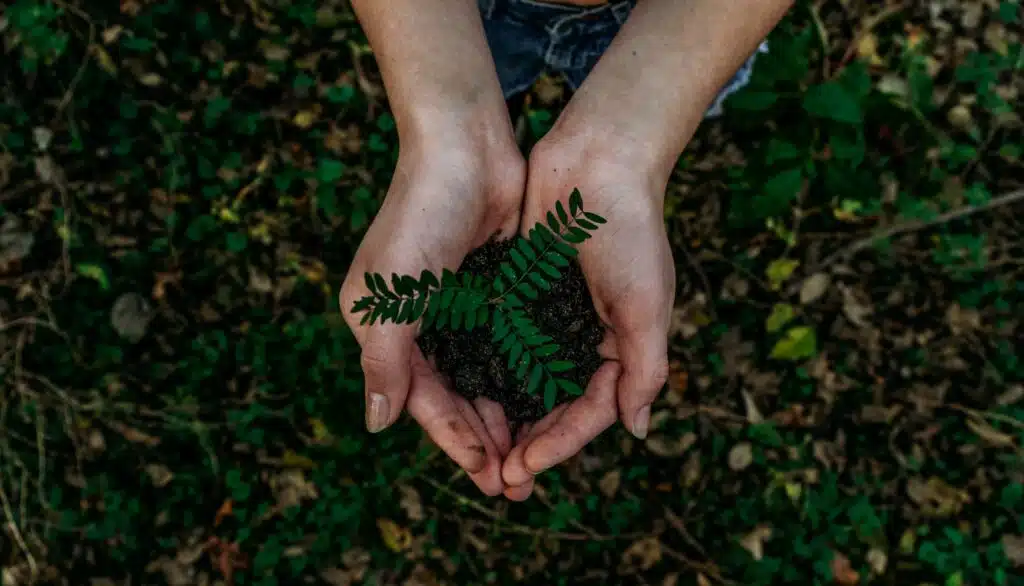The Call to Lead for Sustainability
The term “Sustainability” is arguably this decade’s buzz word, but its value and meaning can be lost amongst the noise of our personal and professional lives. People and planet are calling for action and we all have the opportunity to lead change within our daily lives, our institutions and through the actions we choose as leaders.
Sustainable leadership emphasises the importance of balancing economic, social, and environmental dimensions in order to create long-term sustainable outcomes for organisations, communities and the ecological systems that ‘hold’ us.
‘Being’ a sustainable leader takes this one step further. Sustainability can all too easily be relegated to something separate and distant from us or something that we do. In this article we want to bring sustainability a little closer and suggest that sustainable leadership is a ‘Way of Being’ and at the epicentre is how we choose to ‘be’ as leaders.
The quality of our thinking, how we care for ourselves, others and the environment, and how we commit to developing our own consciousness has a positive and powerful ripple effect on the actions we undertake as leaders for sustainability.
At a recent Liberated Leaders Graduate Connect (a small event for like-minded leaders), we put forward three elements of sustainable leadership as essential for creating a sustainable future: Wellbeing, Ecological Sustainability and Conscious Evolution. Let’s explore all three. As you read, consider what possibilities open as new ways of cultivating yourself as a sustainable leader for the future. People and planet are calling!

Wellbeing
Wellbeing is unique for each of us. In effect, it is an assessment we make of how we believe we are doing in the world – a blend of physical, mental and emotional wellness. The quality of our wellbeing profoundly shapes how we think, feel and move in the world, how we interact and communicate with others and the decisions that we make for ourselves and others in the context of leadership.

Wellbeing is an essential component of sustainable leadership since it recognises that the success of life on the planet, the health of the systems we operate within, and the decisions we make are directly tied to our personal wellbeing – and wellbeing spaces we create for our employees, customers, and stakeholders.
When you prioritise your health and wellbeing and that of your teams, you can create a supportive work environment that leads to increased productivity, engagement, and job satisfaction. This means creating a workplace culture that values work-life balance, offers opportunities for professional development, and fosters a sense of community and belonging.

In addition to promoting wellbeing within your organisations, you create a greater possibility to impact the wellbeing of your broader communities. This means taking steps to support local economies, improve access to healthcare and education, and promote social equity. By prioritising the wellbeing of all stakeholders, you as a sustainable leader, create a more resilient and sustainable future for everyone.
Consider these three reflective questions to check in on (and maybe enhance) wellbeing:
- How diligently are you currently taking care of your own wellbeing?
- What conditions and opportunities are you creating for your people to invest in their wellbeing?
- What opportunities are you generating for community wellbeing?
Ecological Sustainability
Ecological sustainability is probably the most recognised domain of sustainable leadership. This means being aware that the health of the natural environment is essential for the long-term success of yourself, others, your communities and organisation.
As leaders, we can lose sight of the direct impacts we can have. At a personal level, ecological sustainability plays out in terms of conscious consumption of material goods, choosing to support food systems that support better environmental outcomes and conversations you are willing and able to have with friends, family and colleagues that advance their choices for sustainability.
A simple way to start to tune in to reducing your direct and personal impact is to consider the waste hierarchy as a means of mapping and ‘seeing’ new ways of behaving to avoid and reduce consumption. ‘Living’ through this approach requires an emphasis on avoiding consumption where possible, reducing waste, re-using, repairing, recycling and recovering ahead of disposing. A key area of focus that has a high impact is your choices regarding food. Avoiding food waste and supporting food systems (organic, local, in season) that support better ecological outcomes.
Actions need not just be ‘avoidant’ in nature – they can be generative. Conversations can have a critical role in driving better ecological outcomes. What kinds of conversations can you engage in with others to explore, advocate and educate for better ways of living lean and simply such that you influence the collective outcomes of your circle of influence?
Now, let’s think about the impact you can have in the workplace. By being a sustainable leader, you prioritise environmental sustainability by adopting sustainable business practices that minimise your impact on the planet. This might include reducing waste, conserving energy and water, and using renewable resources.

You might also recognise the importance of ecological sustainability in your broader community. This means supporting efforts to protect natural habitats, conserve biodiversity, and mitigate the impacts of climate change. By prioritising ecological sustainability, you can help to ensure a healthy and vibrant planet for generations to come.
Consider the following three reflective questions to check in on (and maybe enhance) ecological sustainability:
- What shifts do you see as possible in regard to consumption of material goods?
- What role do you play in influencing and advocating policies and action for sustainable procurement and initiatives within your organisation?
- Beyond your organisation, how active are you in your citizenship, and what conversations can you engage in with decision makers and politicians to advance sustainable outcomes?
Conscious Evolution

Conscious evolution refers to our personal willingness to continuously re-invest in bettering ourselves, growing, learning and adapting as we evolve our perspectives on self, meaning, living and of course, our leadership.
It can mean recognising that the world is constantly changing and that this requires us to adapt to new challenges and opportunities. Sustainable leaders embrace this change by being proactive and forward-thinking in their decision-making. They recognise that the success of their organisations and communities is dependent on their ability to adapt to changing circumstances and innovate in response to new challenges.
Conscious evolution also involves a recognition of the interconnectedness of all things. As a sustainable leader, you understand that your decisions and actions have impacts that ripple out through your organisations, communities and the world around you. In living this, you strive to make decisions that are aligned with your values and principles, and that contribute to a more sustainable and equitable future.

Living this way may require you to challenge the status quo, create spaces for generative conversations and to listen for and identify possibilities that are not recognised by others.
Consider these three reflective questions to check in on (and maybe enhance) conscious evolution:
- What spaces and opportunities do you create for yourself to reflect on and reframe your perspectives as a leader for sustainability?
- How comfortable are you with challenging the status quo and creating spaces of relative discomfort for the sake of awakening consciousness in others?
- What future opportunities can you identify to help yourself and others act from a conscious awareness of the interconnectedness of all things?
Sustainable leadership is essential for creating a sustainable future. By prioritising Wellbeing, Ecological Sustainability, and Conscious Evolution, you can help yourself, others, your organisation and community to be more resilient, and adaptive. Now is the best time to take charge, lead and transform the way you and your organisation interact with your people and the planet for a regenerative and purposeful life. How might you embrace these principles to create a better future for yourself, future generations and the planet?



